by Rona | Feb 28, 2021 | KPFA, Podcasts, Radio Shows
Many people who are dealing with estrangement in their family don’t talk about it because of shame and fear of judgement. Dealing with estrangement takes an emotional and often physical toll on the people involved. You are not alone! There are things that can sometimes help family members reunite.
Listen now to the show on 3/8/21 on KPFA.org—94.1FM Radio, for an interview with Dr. Joshua Coleman, author of the newly released book, Rules of Estrangement: Why Adult Children Cut Ties and How to Heal the Conflict.

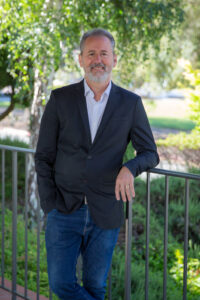 Dr. Joshua Coleman is a psychologist in private practice in the San Francisco Bay Area and a Senior Fellow with the Council on Contemporary Families. He is the co-editor, along with historian Stephanie Coontz of seven online volumes of Unconventional Wisdom: News You Can Use, a compendium of note worthy research on the contemporary family, gender, sexuality, poverty, and work-family issues. His new book, Rules of Estrangement: Why Adult Children Cut Ties and How to Heal the Conflict, was just released by Penguin Random House. He is frequently contacted by the media for opinions and commentary about changes in the American family. He has been a frequent guest on the Today Show, NPR, The BBC, NYU Psychiatry Radio, and has also been featured on Sesame Street, 20/20, Good Morning America, America Online Coaches, PBS, and numerous news programs for television. He has written for the the Atlantic, The New York Times, CNN, NBC, Aeon, Psychology Today, the SF Chronicle and other publications. He is the father of three adult children, has a teenage grandson, and lives with his wife in the San Francisco Bay Area.
Dr. Joshua Coleman is a psychologist in private practice in the San Francisco Bay Area and a Senior Fellow with the Council on Contemporary Families. He is the co-editor, along with historian Stephanie Coontz of seven online volumes of Unconventional Wisdom: News You Can Use, a compendium of note worthy research on the contemporary family, gender, sexuality, poverty, and work-family issues. His new book, Rules of Estrangement: Why Adult Children Cut Ties and How to Heal the Conflict, was just released by Penguin Random House. He is frequently contacted by the media for opinions and commentary about changes in the American family. He has been a frequent guest on the Today Show, NPR, The BBC, NYU Psychiatry Radio, and has also been featured on Sesame Street, 20/20, Good Morning America, America Online Coaches, PBS, and numerous news programs for television. He has written for the the Atlantic, The New York Times, CNN, NBC, Aeon, Psychology Today, the SF Chronicle and other publications. He is the father of three adult children, has a teenage grandson, and lives with his wife in the San Francisco Bay Area.
by Rona | Feb 10, 2021 | KPFA, Podcasts, Radio Shows
Listen now to the 2/15/21 show on KPFA.org (94.1FM)
50 million people are living with Alzheimer’s and other dementias worldwide, and there are nearly 10 million new cases every year. Here in the U.S. African Americans are twice as likely to develop Alzheimer’s and other dementias, but only half as likely to get a proper diagnosis, treatment or access to support resources.Join us to talk about the diagnosis and care of people with dementia and how culture, race, and health disparities are important parts of the discussion.
Guest:
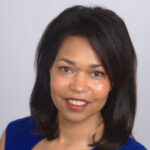
Karla Fields is a Community Outreach Specialist at the Alzheimer’s Association. Her primary focus is outreach to the African American community. She is a former educator and has over 30 years experience in education, public relations, fundraising and civic engagement. In her free time Karla enjoys spending time with her husband and three children. https://www.alz.org/norcal
by Rona | Jan 29, 2021 | KPFA, Podcasts, Radio Shows
Listen now to the show on February 1, 2021 on @KPFA.org— 94.1FM, at 2PM.
My guest, Veronique Mead, reports: Dr. Vincent Felitti, co-investigator of the original and most well known ACEs (adverse childhood experiences) study spent over 25 years running a weight loss clinic. His team found that trauma is a risk factor for type 2 diabetes and also for bigger bodies. “Obesity,” it turns out, is a “biomarker.” Bigger bodies are an indication of stressful events in the past and a physiology that is no longer regulating in an optimal way for current circumstances.” (Wickrama, 2017; Felitti, 2010).” Veronique Mead says, “There is a profound and deeply shaming stigma assigned to larger bodies or having type 2 diabetes (T2D) in our culture.”
We’ll talk about how to reduce shame and blame and deepen our understanding of the connection between adverse experiences and disease.
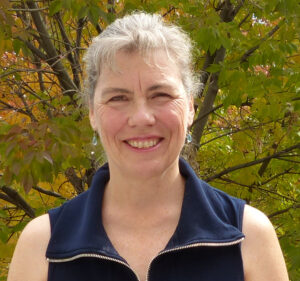 Veronique Mead was an Assistant Professor of Family Medicine and practicing physician at the New Hampshire-Dartmouth Family Practice Residency program when she changed careers and retrained as a Somatic Trauma Therapist. For the past 2 decades she has been integrating the science of adversity into a new model for making sense of chronic illness and has pulled together a database of more than 12,000 references. She also draws from her personal journey of gradual recovery from disabling chronic fatigue syndrome and emphasizes how effects of trauma are not psychological as is still often mistakenly believed. Veronique shares the science on her blog, ChronicIllnessTraumaStudies.com
Veronique Mead was an Assistant Professor of Family Medicine and practicing physician at the New Hampshire-Dartmouth Family Practice Residency program when she changed careers and retrained as a Somatic Trauma Therapist. For the past 2 decades she has been integrating the science of adversity into a new model for making sense of chronic illness and has pulled together a database of more than 12,000 references. She also draws from her personal journey of gradual recovery from disabling chronic fatigue syndrome and emphasizes how effects of trauma are not psychological as is still often mistakenly believed. Veronique shares the science on her blog, ChronicIllnessTraumaStudies.com
by Rona | Jan 14, 2021 | KPFA, Podcasts, Radio Shows
Not all patients are treated equally.
Racism affects many aspects of healthcare in our country, including pregnancy and infant mortality, emergency treatment, pain management, addiction, and mental health care. Actually, you can find racism in any part of the medical care system as long as there are people who are not doing the vital anti-racist work that we are all called upon to do.
This show was on 1/18/21 on 94.1FM—KPFA.org
This was a timely discussion about racism experienced in medical care settings.
Some health care professionals actively discriminate against patients, even though it’s rare that they are held accountable. During the Covid-19 crisis we have also seen how racism has caused more deaths in the Black, Indigenous, and people of color communities. “A May 2020 study estimates that in the U. S., Black people were 3.57 times more likely to die from COVID-19 than white people. Similarly, the risk of death within the Latinx population was nearly twice that of the white population.”
Guests:
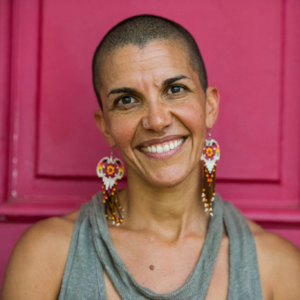
J. Miakoda Taylor is the founder and Lead Steward of Fierce Allies (www.fierceallies.com), a body of work, suite of services, and community of practitioners catalyzing dynamics of power and privilege towards equity and justice. The work integrates the fields of Restorative Justice, Somatic Trauma Healing, embodied and popular education, group facilitation, conflict transformation, and storytelling. The community of practice is comprised of leaders from a wide range of sectors including: public health, environmental justice, child and family services, technology, immigrant rights, criminal justice, and food sovereignty. Together, Miakoda and the community of practice are creating a new road map for intersectional collaborations and coalitions. An award winning photographer, Miakoda has received several fellowships, including a J. W. Fulbright, to conduct photo-ethnographic studies of diverse cultures around the globe. Images from their work focused on street children and women working as domestic servants in South Africa from 1993-1996, have been exhibited throughout the world, most notably as part of the United Nations World Conference Against Racism and at the Metropolitan Museum of Art. They are also an avid meditator, yogi, and dancer.

Diane Barnes an actor, writer, speaker and physician. She is a graduate of Stanford University and the Yale University School of Medicine, with postdoc training at UCSF and Stanford. Her award winning solo show, My Stroke of Luck, developed with David Ford, shares her story of stroke, recovery, and reinvention as a single mother and working physician. Extended multiple times at The Marsh, it has played internationally, at numerous theater festivals, universities, and medical schools. The murder of George Floyd inspired her new work, Not One of Us, a comedic/dramatic exploration of the intersection of class, race, gender and privilege in her life. Also developed with David Ford, Not One of Us, premiers at the Playground Solo Performance Festival Jan 22-Feb 7th, 2021. This version revolves around her experiences in medicine: from training at Yale Medical School to Lagos Nigeria, from practicing medicine to becoming a patient. Diane is a Meisner-trained actor and BATS trained improvisor. She completed the Global Identities Workshop with Anna Deveare Smith, ACT Summer Intensives and Berkeley Rep Spring Intensive.
Resources from Diane Barnes:
-
Medical Apartheid: The Dark History of Medical Experimentation on Black Americans from Colonial Times to the Present, by Harriet A Jackson
-
Fatal Invention: How Science, Politics, and Big Business Re-create Race in the Twenty-first Century, by Dorothy Roberts
-
Killing the Black Body: Race, Reproduction, and the Meaning of Liberty, by Dorothy Roberts
-
Medical Bondage: Race, Gender, and the Origins of American Gynecology, by Deirdre Cooper Owens
-
https://www.nejm.org/doi/full/10.1056/NEJMms2025768 Misrepresenting Race — The Role of Medical Schools in Propagating Physician Bias, New England Journal of Medicine.
by Rona | Dec 31, 2020 | KPFA, Podcasts, Radio Shows
During this time of heightened stress and uncertainty, are you feeling good about your body, energy, and overall well-being? How is your mood, and do you turn toward food for comfort? There are ways to get back in touch with what nourishes you and helps you stay well in body and mind. There is no “One size fits all” formula for health. We are all different, and finding ways to tap into our body’s wisdom can be transformative.
Listen Now to the 1/4/21 show on About Health on KPFA.org—94.1FM
Guests:
 Valerie Tookes is a National Board-Certified Health and Wellness Coach (NBC-HWC) and an ICF Professional Certified Coach (PCC) who believes that trusting your body’s deepest wisdom, equals true health. Her work is devoted to helping women transform their world by changing the way that they see their body. She works as a Health and Wellness Coach with The Women’s Vitality Center in Berkeley; and as a Lead Coach with the online Courageous Living Coach Certification Program. A graduate of Florida State University, University of Oregon, California Institute for Integral Studies, and the Institute for Integrative Nutrition, she happily lives in Oakland with her new rescue kitty Austin. To find out more go to https://womensvitalitycenter.com/
Valerie Tookes is a National Board-Certified Health and Wellness Coach (NBC-HWC) and an ICF Professional Certified Coach (PCC) who believes that trusting your body’s deepest wisdom, equals true health. Her work is devoted to helping women transform their world by changing the way that they see their body. She works as a Health and Wellness Coach with The Women’s Vitality Center in Berkeley; and as a Lead Coach with the online Courageous Living Coach Certification Program. A graduate of Florida State University, University of Oregon, California Institute for Integral Studies, and the Institute for Integrative Nutrition, she happily lives in Oakland with her new rescue kitty Austin. To find out more go to https://womensvitalitycenter.com/
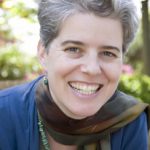
L. Rebecca (Reba) Connell, LCSW, (LCS 19814) Is a Certified Mental Health Integrative Medicine Professional, who teaches Mindfulness-based Stress Reduction (MBSR) and Nourish Your Mood: Meditation and Eating with the Brain in Mind classes. She is deeply engaged with science-based and traditional approaches to healing through food and self-care. She is a graduate of Brown University, where she focused on multicultural women’s issues, and UC Berkeley, where she researched the connection between depression and pain in women at UCSF. Finding mindfulness, movement, and food to make big differences in her own healing from chronic pain, she feels called to share what she is learning with others and to help people make their own discoveries. While focused on studying food for mood, sleep, and pain, she accidentally learned about the latest developments in the science of nutrition.You can find out more at http://www.centerforstressreduction.com.
by Rona | Dec 19, 2020 | KPFA, Podcasts, Radio Shows
Listen now to the 12/21/20 show on KPFA radio—94.1FM, for current information about vaccines, Covid-19 cases, and what we can do to stay safe and out of the hospital.
More than 17 million people in the U.S. have had confirmed coronavirus infections and more than 310,000 have died of COVID-19. Tens of thousands of new cases are reported daily nationwide, and California has had over 23,000 deaths. There is hope with the rollout of vaccines, but it will be some time before we can be confident of our health and safety.
I was joined by Dr. Christine Doyle. So grateful she took time to answer some of our questions.
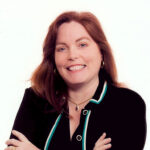
Dr. Christine Doyle is a physician trained in anesthesiology and critical care. She practices in the Silicon Valley, and is the Immediate Past President of the California Society of Anesthesiologists (CSA), and a Fellow of the American Society of Anesthesiology. As President of the CSA when the coronavirus pandemic hit, Dr. Doyle was responsible for initial recommendations about protective equipment, and performing surgery, for members of the society. She also provided expert background information for state officials who were developing guidelines and changing protocols for California healthcare systems. She continues to serve as a leading voice in professional medical association activities through political advocacy, engaging with the media, and keeping anesthesiologists informed of key issues facing their specialty.
 Dr. Joshua Coleman is a psychologist in private practice in the San Francisco Bay Area and a Senior Fellow with the Council on Contemporary Families. He is the co-editor, along with historian Stephanie Coontz of seven online volumes of Unconventional Wisdom: News You Can Use, a compendium of note worthy research on the contemporary family, gender, sexuality, poverty, and work-family issues. His new book, Rules of Estrangement: Why Adult Children Cut Ties and How to Heal the Conflict, was just released by Penguin Random House. He is frequently contacted by the media for opinions and commentary about changes in the American family. He has been a frequent guest on the Today Show, NPR, The BBC, NYU Psychiatry Radio, and has also been featured on Sesame Street, 20/20, Good Morning America, America Online Coaches, PBS, and numerous news programs for television. He has written for the the Atlantic, The New York Times, CNN, NBC, Aeon, Psychology Today, the SF Chronicle and other publications. He is the father of three adult children, has a teenage grandson, and lives with his wife in the San Francisco Bay Area.
Dr. Joshua Coleman is a psychologist in private practice in the San Francisco Bay Area and a Senior Fellow with the Council on Contemporary Families. He is the co-editor, along with historian Stephanie Coontz of seven online volumes of Unconventional Wisdom: News You Can Use, a compendium of note worthy research on the contemporary family, gender, sexuality, poverty, and work-family issues. His new book, Rules of Estrangement: Why Adult Children Cut Ties and How to Heal the Conflict, was just released by Penguin Random House. He is frequently contacted by the media for opinions and commentary about changes in the American family. He has been a frequent guest on the Today Show, NPR, The BBC, NYU Psychiatry Radio, and has also been featured on Sesame Street, 20/20, Good Morning America, America Online Coaches, PBS, and numerous news programs for television. He has written for the the Atlantic, The New York Times, CNN, NBC, Aeon, Psychology Today, the SF Chronicle and other publications. He is the father of three adult children, has a teenage grandson, and lives with his wife in the San Francisco Bay Area.





 Valerie Tookes is a National Board-Certified Health and Wellness Coach (NBC-HWC) and an ICF Professional Certified Coach (PCC) who believes that trusting your body’s deepest wisdom, equals true health. Her work is devoted to helping women transform their world by changing the way that they see their body. She works as a Health and Wellness Coach with The Women’s Vitality Center in Berkeley; and as a Lead Coach with the online Courageous Living Coach Certification Program. A graduate of Florida State University, University of Oregon, California Institute for Integral Studies, and the Institute for Integrative Nutrition, she happily lives in Oakland with her new rescue kitty Austin. To find out more go to
Valerie Tookes is a National Board-Certified Health and Wellness Coach (NBC-HWC) and an ICF Professional Certified Coach (PCC) who believes that trusting your body’s deepest wisdom, equals true health. Her work is devoted to helping women transform their world by changing the way that they see their body. She works as a Health and Wellness Coach with The Women’s Vitality Center in Berkeley; and as a Lead Coach with the online Courageous Living Coach Certification Program. A graduate of Florida State University, University of Oregon, California Institute for Integral Studies, and the Institute for Integrative Nutrition, she happily lives in Oakland with her new rescue kitty Austin. To find out more go to 

